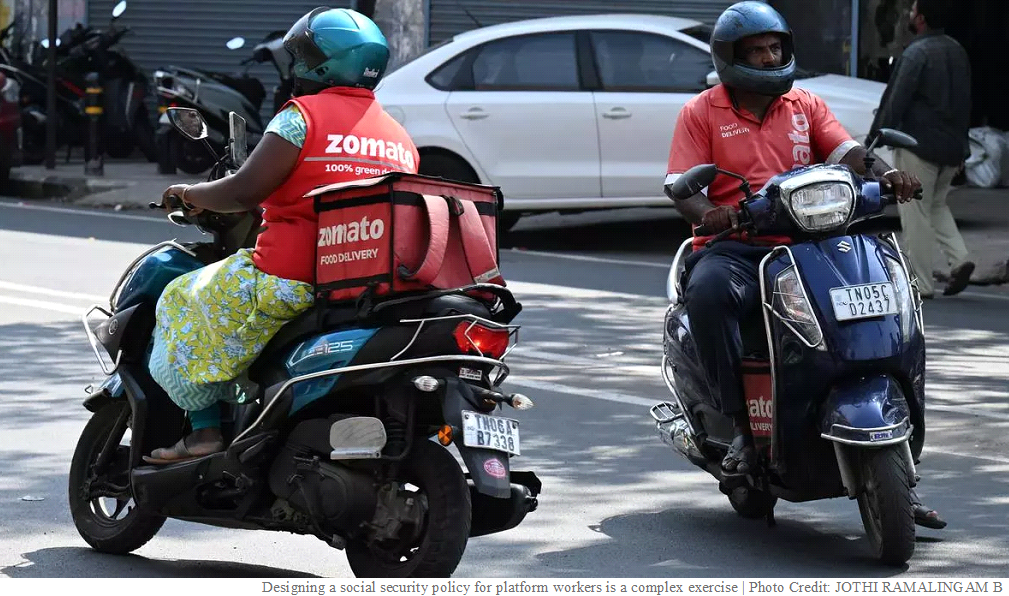Universal social security works best for platform workers
05 Apr 2024
Opinion: Bornali Bhandari and Ajaya K Sahu.
There are no win-win options here as all of them involve trade-offs. Policy makers must strike a balance.
A universal social security system is perhaps the best option to protect gig workers.
The Code on Social Security, 2020 defines gig worker as a “person who performs work or participates in a work arrangement and earns from such activities outside of a traditional employer-employee relationship”.
The NITI Aayog report states that “gig workers can be broadly classified into platform and non-platform-based workers. Non-platform gig workers are generally casual wage workers and own-account workers in the conventional sectors, working part-time or full-time.”
The platform worker has the following characteristics — task/deliverables-based contract between the service provider and the online intermediary (platform); the contract is market/transactions based with costs of transaction failure risks to the intermediaries and; the exact nature of the service provided and price for the service are pre-determined.
Platform work makes the work formal while the worker remains informal. In non-platform gig work, both work and the worker remain informal.
The second-best solution is a system that is designed for platform workers only, as a first step, with the justification that platform workers work longer hours than an average casual wage worker, while the incomes are comparable or marginally higher (NCAER Report 2023).
For some platform workers (especially in delivery services), the risk of having accidents is higher.
Two options
Here we propose two alternative options for platform workers while they are on a platform job either on a long-shift or short-shift basis.
There are essentially three questions — what to finance, for whom to finance and how to finance.
The ‘whom to finance’ is very clear — the social welfare system is designed only for platform workers while they are actively employed on platforms. One could potentially give them a buffer for three months. After that they lose their social cover. This poses a challenge and the only way to overcome that is to create a universal social welfare system.
On the question of what to finance, it could be full health insurance for the worker and their family and pensions, only for the time that they are “active” in platforms and three months thereafter to give them a buffer. A board for social welfare can be formed.
How to finance this scheme? One option is a Rajasthan type of framework, where the funds are derived from each transaction. The trade-off is the ease of doing business may be affected, which in turn may lead to creation of less jobs in this sector.
The other option is a share of the domestic annual turnover of the platform company which is employing platform workers earmarked for this (i.e. is dealing with platform delivery).
Again, it is hard to determine the annual turnover, and the share that is catering to platform workers.
Alternatively, the platform companies directly provide workers with social welfare benefits. Platform companies pay the premium directly to health insurance firms, insuring all platform workers. Their families should get full health insurance. Micro insurance products could be designed. Life insurance scheme for the worker is also important.
The platforms should ensure that the workers earn minimum wages prevailing in the city/State. The minimum wage is equivalent to the net wage that a platform worker earns and not gross wages (i.e. wages as defined by the State/city gross income minus costs including fuel, car insurance and maintenance etc).
Platform workers can receive additional benefits from the government.
The policymaker has to walk a fine line between creating jobs and providing workers social protection. One should not create such a high burden on platform companies that they exit.
A universal approach to providing social welfare benefits is better than piecemeal approach.
Bhandari is a Professor and Sahu is an Associate Fellow at NCAER. Views expressed are personal.
Published in: The Hindu Business Line, 05 Apr 2024






